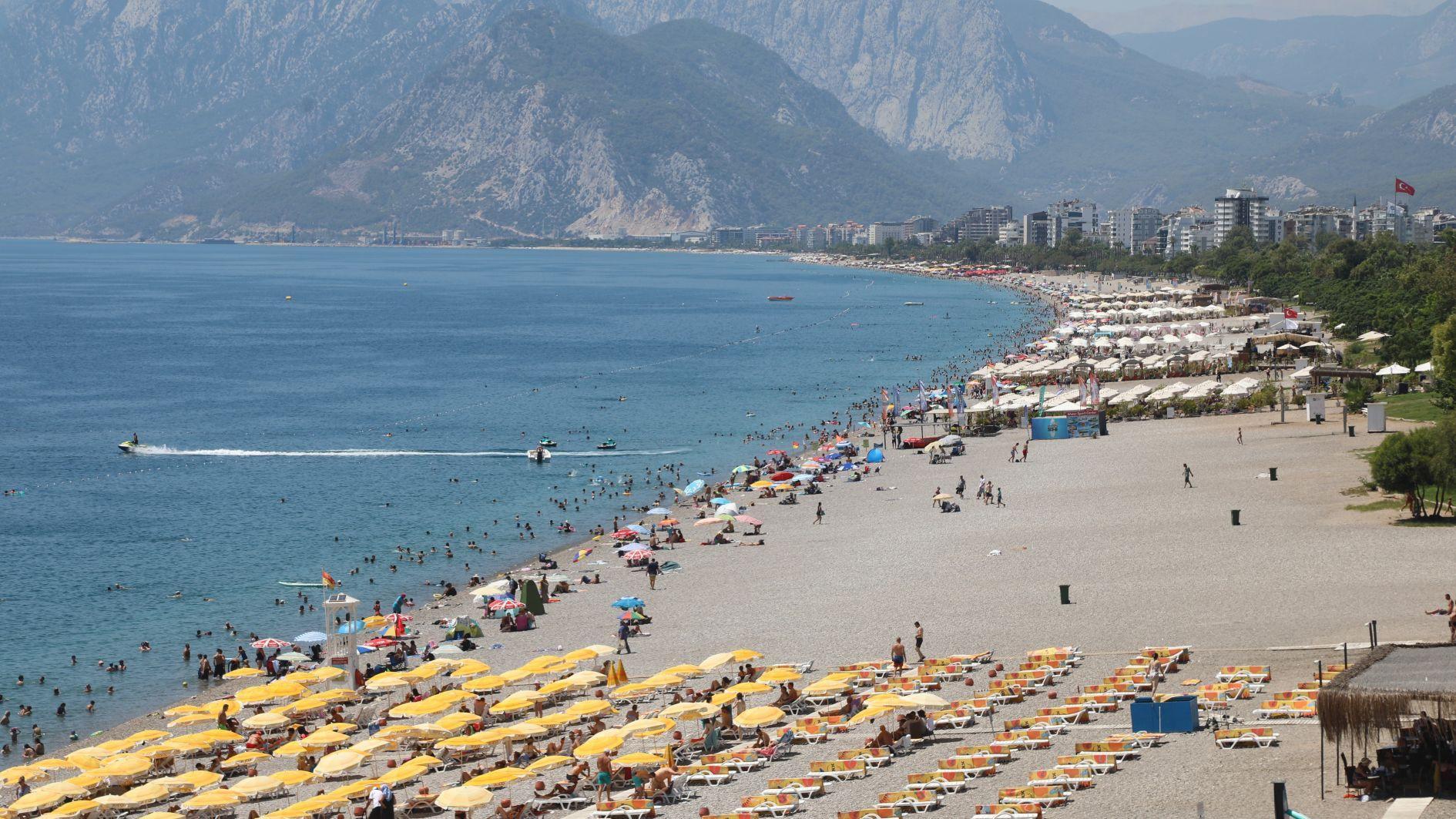
Beaches in the southwestern province of Antalya, among Türkiye’s most visited coastal destinations, cannot legally be rented out or closed off, consumer advocates have warned, amid growing backlash over “paid beach” practices enforced by hotels and private operators.
In recent weeks, holidaymakers and residents have voiced frustration that stretches of the Mediterranean shoreline are increasingly dominated by establishments charging entry fees, renting out sunbeds and umbrellas, or banning visitors from bringing their own food and drink.
“Coasts are open to everyone under the constitution. These areas cannot be rented out, they belong to the people and must remain accessible to the public,” said Neşet Gündüz, head of the Antalya branch of the Consumer Union.
He criticized municipalities and local administrations for failing to oversee businesses that, he argued, operate “at the level of occupation” by fencing off beachfronts and charging visitors.
Gündğz emphasized that citizens have the right to bring their own provisions to the beach and cannot be forced to pay for services they do not use.
“Today, many beaches not only demand an entry fee at the gate but also prohibit outside food and drinks. A consumer cannot be charged for services they have not purchased. Even sunbed fees can be challenged at the Consumer Arbitration Board, and the money can be reclaimed,” he said.
According to Gündüz, municipalities collect “occupation fees” by leasing coastal areas to private businesses, a practice he called unlawful.
“The state must intervene. Go to the parks by Konyaaltı beach, and everything is monetized — even the parking lot. Why should entering a public park come with a fee? Because institutions do not fulfill their duties, consumers cannot exercise their rights, and as a result businesses feel emboldened to pressure citizens,” he added.
He also stressed that only courts have the authority to impose bans or fines, not private companies or municipalities.
“Posting a sign that says ‘No outside food or drinks allowed’ has no legal basis. Such rules invented by operators or local governments cannot restrict citizens. This is a very dangerous path that could lead to social tensions,” Gündüz warned.
The controversy over paid beaches in Türkiye echoes similar disputes in Greece, where the so-called “towel movement” emerged. Citizens there staged protests by laying towels on privatized beaches to reclaim public space.
The movement also gained traction in Türkiye in popular beach destinations like Datça, Alaçatı and Ayvalık.